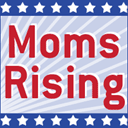Thursday, Immy's School
Friday, February 26, 2010
Love, Peace and Breastfeeding
"The rise of breastfeeding in countries at war has contributed to a marked decline in infant mortality during armed conflict, a recent report says.
Children younger than 5 are twice as likely to die in war than adults, mostly from disease, the 'The Shrinking Costs of War' indicates. The report, released mid-January by Simon Fraser University in Vancouver, Canada, also says infants up to 6 months old who are exclusively breastfed are seven times less likely to die from diarrhea and five times less likely from pneumonia than infants not breastfed."
-Seattle Midwifery School, "From Women's eNews: Breastfeeding During War Helps Lower Infant Mortality." Midwifery & Doula News, February 2010.
Wednesday, February 24, 2010
Earliest Exposures
The Washington Toxics Coalition is highlighting the story of Molly Gray, a Seattle mother who took part in WTC's recent study on toxic chemicals in pregnant mothers. Shocked at her results despite avoiding chemicals, Molly testified today before a US Senate committee.
"Molly was one of nine pregnant women tested for toxic chemicals as part of a Washington Toxics Coalition study called Earliest Exposures. Molly found out that while she was pregnant she had the highest levels of mercury of anyone in the study and had higher then the national average for a number of others.
Molly describes the experience of finding out her body was contaminated with toxic chemicals:
'I will admit - I assumed I would test chemical-free. After all, for the last five years I had done everything I could to reduce my exposure to toxic chemicals. I ate organic food, chose low-mercury seafood and used personal care products without phthalates and fragrances. Despite my efforts, my results were higher than the national average...As clean as I tried to be, it was not enough to protect my baby boy.'"
Molly describes the experience of finding out her body was contaminated with toxic chemicals:
'I will admit - I assumed I would test chemical-free. After all, for the last five years I had done everything I could to reduce my exposure to toxic chemicals. I ate organic food, chose low-mercury seafood and used personal care products without phthalates and fragrances. Despite my efforts, my results were higher than the national average...As clean as I tried to be, it was not enough to protect my baby boy.'"
Photo + Info: Washington Toxics Coalition
The Only Amazing Thing
Rufus Wainwright:
"One time I was hanging out with Leonard Cohen and his daughter," he says. "She was talking about this child she had known as a baby who she hadn't seen for a few years and how he was now grown up, and she said to her dad: 'You know, it's pretty amazing watching how the baby became a person.' Leonard looked at her and replied very drily, as only he could: 'You know, it's pretty much the only amazing thing there is.'"
Tim Adams, "Rufus Wainwright: 'I was looking right into her face when my mother died.'" The Observer, February 21, 2010.
Thursday, February 11, 2010
The Emotionally Intelligent Family
Dr. John Gottman:
“Before I became a father, I had spent nearly twenty years working in the field of developmental psychology, studying the emotional lives of children. But it was not until our child arrived in 1990 that I began to truly understand the realities of the parent-child relationship.” Intense love. Frustration. Joy. Disappointment. Vulnerability.
“Surprisingly,” Dr. Gottman explains, “much of today’s popular advice to parents ignores emotion. Instead it relies on child-rearing theories that address children’s misbehavior, but disregards the feelings that underlie that misbehavior. The ultimate goal of raising children should not be simply to have an obedient and compliant child. Most parents hope for much more for their children. They want their children to be moral and responsible people who contribute to society, who have the strength to make their own choices in life, who enjoy accomplishments of their own talents, who enjoy life and the pleasures it can offer, who have good relationships with friends and successful marriages, and who themselves become good parents.
“In my research I discovered that love by itself wasn’t enough. We found that concerned, warm, and involved parents often had attitudes toward their emotions and their children’s emotions that got in the way of talking to their children when the child was sad or afraid or angry. The secret to being an emotionally intelligent parent lay in how parents interacted with their children when emotions ran hot.” –adapted from pp. 15-16, Raising an Emotionally Intelligent Child by John Gottman with Joan DeClaire.
Dr. Gottman’s research has also shown that an important element to successful parenting was based on how parents interacted with each other when emotions ran hot. Dr. Gottman and other researchers have observed that children benefit the most when parents have a strong relationship. “It isn’t so much about staying married for the sake of the kids. Couples need to stay happily married, if they can, in order to help their children. In families where the parents aren’t living with each other or are not going to stay married, the parents can best help their children by minimizing their children’s exposure to destructive conflict. High levels of parental conflict create emotional distress on the children and decrease effective parenting skills.
Wednesday, February 10, 2010
Heavenly Creatures
"I'm babysitting her for God until she can take care of herself."
-Kelly Cutrone of People's Revolution on mothering Ava, 7
Subscribe to:
Posts (Atom)








